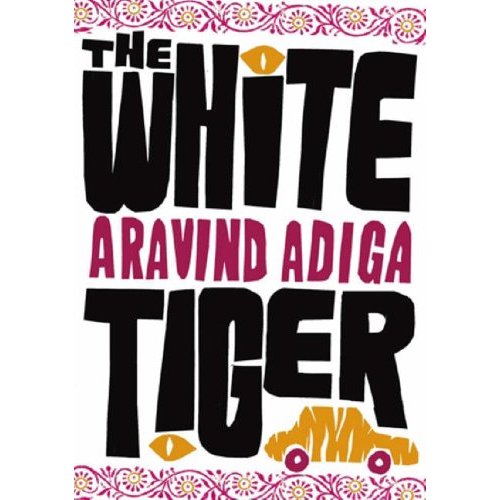Ilankai Tamil Sangam30th Year on the Web Association of Tamils of Sri Lanka in the USA |
|||
 Home Home Archives Archives |
The Alleged Booker Prizeby Jason Overdorf, OutlookIndia, October 20, 2008
It's less Orientalist and doesn't trap you in the little-brown-man box
Consider the front-page Times of India story that announced the news. The first paragraph cites as the reason for the win Adiga's "alleged ability to offer insights into the struggle of a developing nation on the rise"—effectively condemning the Booker winner as a fake. The conventional and obviously objective alternative would have been to say, "In awarding the prize, the judges praised Adiga's skill in providing insight into the struggle of...." 'Alleged', which to the newspaper man implies somebody is being accused of a crime and the lawyers are worried about a case of libel, is a word used to skewer. Any editor will tell you that its use here was no accident. From the beginning, The White Tiger received an uncomfortable reception. The author (a friend of mine) is, if not actually a foreigner, then foreign-returned, which my wife tells me ranks even lower on the totem pole. Worse still, regardless of his ethnicity, he was a writer for Time magazine, and therefore guilty of writing bad stuff about India: that the people here are poor; they suffer from diseases like polio and tuberculosis that have been eliminated across much of the world and similar nonsense. And he did it in the book, too! The White Tiger is about a guy from Bihar, for goodness sake! Naturally, the reviews, and even some of the news articles, are peppered with backhanded compliments. But there are worse things than being called poor. Compared with Inheritance of Loss, The White Tiger is more compelling, better written, and—and this is the really important thing—less Orientalist. Inheritance of Loss infuriatingly propagates the "little brown men doing cute little things" rubbish, that by all rights should have disappeared with India's colonists. But Indian readers overlooked this allegedly cute stuff about Anglo-Indians and Nepali immigrants and their silly ways, because of the book's nostalgic, patriotic content. Though The White Tiger has its own broad brush moments, that kind of pandering—cheap, tired jokes about "peculiar" Indian English and the like, with which that schlocky, much-praised tome Shantaram was chock-full—is largely absent. The trouble is that The White Tiger is gleefully vicious in lampooning the middle class who are, regardless of the tired accusations about "writing for the foreign market," Aravind's true audience. It's a familiar reaction. The critics of the foreign correspondent corps insist we are always banging on about poverty and filth, when we should be pointing out the five-star hotels. But stories about India's slowness in eradicating poverty, malnutrition, disease and the like are rarer than you think. Aravind has called The White Tiger "a result of my secret, uncensored articles", because it is almost impossible to get anything into Time or The Economist or Newsweek about the problems that India has had for decades and—because they are too big, or the system is too flawed, or whatever—hasn't been able to solve. Poverty is bad. It is everywhere. But it is not news. When articles on these topics appear, nobody should be surprised. The same thing appears in the Times of India every day and Outlook every week.Nor should they be angry, unless the writer tries to imply that some white guy could step in and sort the mess out in a year or two. It's the other kind of foreign correspondent rubbish, the Orientalist crap, that ought to get people incensed. Why does every article have to begin with a woman in a colourful sari, squatting in the dust? Why are western readers so concerned with the fate of tame elephants, snake-charmers and eunuchs? And why do we always find somebody to quote who speaks in Indian English as unbelievable as that invented by Gregory David Roberts? Because it's exotic, because it's allegedly cute. But it makes you all out to be little brown folks, funny but inscrutable. I, for one, would rather be called poor. And I'd rather have somebody, like Aravind, to make me angry about it. |
||
|
|||
 Normally, when an Indian wins the Booker Prize, the country rallies round to cheer, and even the most dubious "voracious readers" from the pages of Stardust suddenly develop an interest in literature. But Aravind Adiga's The White Tiger was never a book Indians wanted to read, and even with the much-coveted stamp of approval from abroad, it's hard telling whether it will get the 1,00,000-copy boost in sales experienced by Kiran Desai's Inheritance of Loss.
Normally, when an Indian wins the Booker Prize, the country rallies round to cheer, and even the most dubious "voracious readers" from the pages of Stardust suddenly develop an interest in literature. But Aravind Adiga's The White Tiger was never a book Indians wanted to read, and even with the much-coveted stamp of approval from abroad, it's hard telling whether it will get the 1,00,000-copy boost in sales experienced by Kiran Desai's Inheritance of Loss.